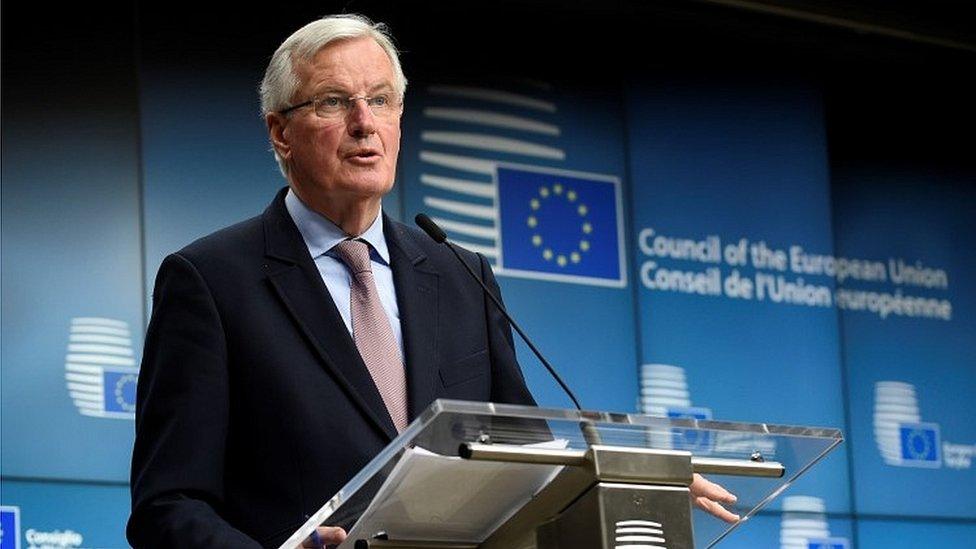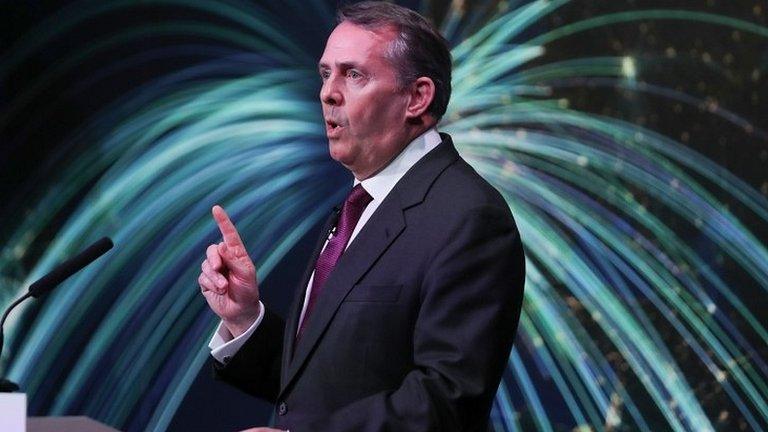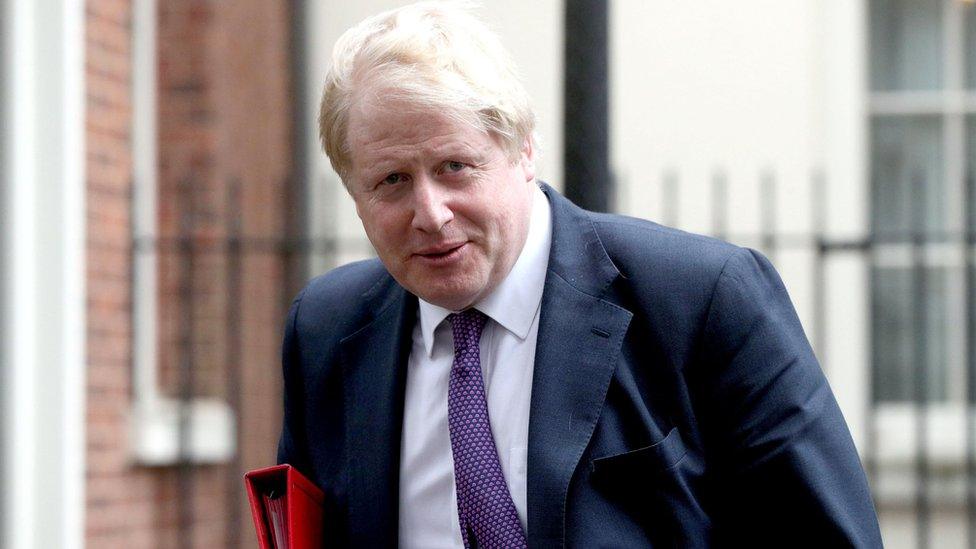Barnier: UK cannot have open-ended Brexit transition
- Published

Significant differences remain between the UK and EU over the length of any post-Brexit transition period, the EU's negotiator Michel Barnier has said.
He suggested the UK wanted an "open-ended" arrangement while the EU wanted a "short and time-limited" period that would last no more than 21 months.
He said he hoped the publication of a draft withdrawal agreement on Wednesday would help address unresolved issues.
The future of the Irish border could not be left "pending", he also said.
The UK has made it clear that it wants a time-limited "implementation" period of about two years after the UK's exit on 29 March 2019 and that it sees this period as a "bridge" to its new partnership with the EU.
It says the period should last as long as it takes to "prepare and implement the new processes and new systems", but will end on a "fixed date".
In a briefing in Brussels, Mr Barnier said there would be "no surprises" in Wednesday's document which he said would set out the EU's position on transition and would translate political commitments agreed last December on Northern Ireland, citizens' rights after Brexit and financial issues into legally binding text.
Mr Barnier insisted once again there could be "no regulatory divergence" from EU rules during the transition and the UK would have to accept the existing body of EU law as a whole.
He also said differences remained over what rights EU citizens coming to the UK during the transition would have and the extent to which the UK would take part in EU-wide justice, foreign affairs and security arrangements.
Restating the EU's position that the transition should end on 31 December 2020, he said there were suggestions the UK did not want to put a definite end date on it.
"There are significant points of disagreement with the UK as to what we understand as transition agreement, the duration of this, and conditions for such an agreement," he said.
"The UK would like to, it seems, keep this duration open, which is not possible... In the light of these disagreements, we have not achieved a transition yet."
He said he was prepared to begin talking to the UK on solutions to avoid a hard border between Northern Ireland and the Republic of Ireland once his counterpart David Davis put forward "concrete" proposals.
The UK has said it hopes to maintain the existing invisible border either by sealing a comprehensive new partnership with the EU or, failing that, through the use of technology.
In the meantime, Mr Barnier said it was the EU's responsibility to include the "backstop" option of Northern Ireland maintaining full regulatory alignment with the Republic in areas of existing North-South co-operation if no other solutions could be made to work.
While all three options would be mentioned in the 120-page document, he said it would be this one which would be "operationalised" into legally binding text.
The Democratic Unionist Party, which Theresa May relies on for votes to support her minority government, has expressed concern on the EU's emphasis on this possible outcome, which could effectively see Northern Ireland remaining in the customs union while the rest of the UK leaves.
Irish Prime Minister Leo Varadkar told the Irish Parliament on Tuesday that it could not be assumed the text would be agreed by the UK or all the Northern Ireland parties so we may face "an interesting few weeks".
- Published27 February 2018

- Published27 February 2018
